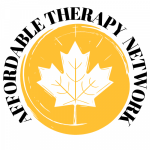Hi, I am so glad you reached out, as psychotherapy can be an important part of self care. It can hold us and help us makes sense of the sometimes confusing and very painful sides of life. It can also help us better navigate these times, making some room for compassion and healing. It can even bring about fulfillment, liberation and authenticity. Being biologically, psychologically and socially informed, allows me to use a number of different lenses including: neurobiological, somatically informed, trauma informed, emotionally focused, cognitive, dialectical, anti oppressive, structurally competent and relational lenses. This allows for a highly personalized, flexible and adaptive approach that accommodates what works best for you. I care deeply about creating a safe space for you to explore emotions and conscious and unconscious patterning. When emotions are allowed to be safely felt, no matter what emotion, they are a great tool that not only help inform us but also ultimately help us heal and grow. The goal is not to pathologize or maybe even to eliminate emotions or patterns but to befriend them in a way that is compassionate and informative. Only through understanding our challenges on an emotional, cognitive and social level, can we then begin to better cope and connect with the sources of support, comfort and strength. I value, celebrate and honour diversity, authenticity and connection, with a feminist and intersectional understanding. My practice focuses on but is definitely not limited to working with struggles with anxiety, mood regulation, low self-esteem, identities and roles, feeling stuck, what feels like not so functional repetitive behavioural patterns, transitions in life (including early adulthood to adulthood) and relationships. In addition, my research has focused on understanding and alleviating the trauma and shame associated with feeling different (ostracized) from a non inclusive norm, social injustice and discrimination. This includes helping parents of neurodiverse children.

